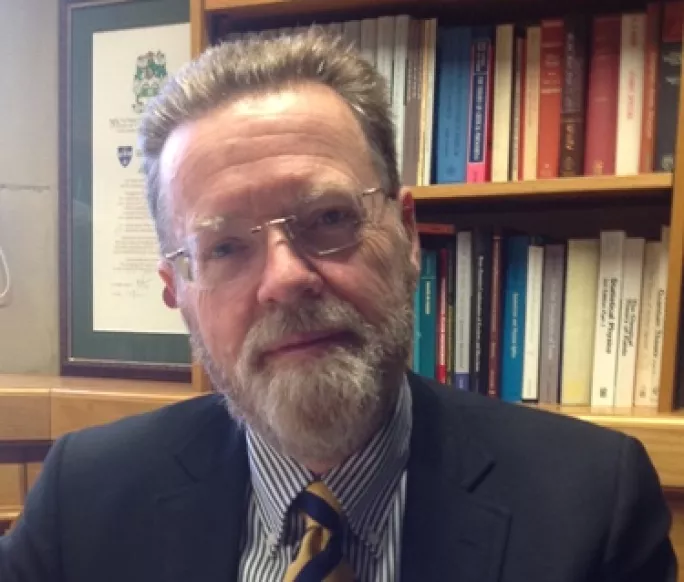
‘Apprenticeship or university? Why not both?’
Professor Sir Keith Burnett, vice-chancellor of The University of Sheffield, writes:
Last month Labour revealed plans to guarantee a “high-quality” apprenticeship for every school leaver who gets the grades.
Then, just last week, a report revealed what parents really think of apprenticeships. The TES headline summed it up: ’Parents back apprenticeships - but not for their own children’.
The two-tier class-system of British education is, it appears, alive and well. Vince Cable agrees. He said it had been a mistake to turn polytechnics into universities. Today the aspiration is to secure a university degree, despite concerns about fees and graduate repayments universities have come to enjoy a near monopoly on aspiration.
The reality though is that it does not have to be like this.
The UK’s leading research-intensive universities, such as Sheffield, have increasingly close relationships with industry and there is a powerful national push to translate what is learned by academics in the lab into the products that will fuel our economy. This approach is already helping shift perceptions of apprenticeships as second-class qualification towards parity of esteem university degrees.
This week is National Apprentice Week and political parties are vying with one another (rightly) to show their credentials on vocational education. They are right because if you speak to any employer, particularly those who wish to invest in the UK from overseas, they will tell you that the biggest limiting factor on their plans to expand or relocate is the availability of the right kind of skills.
Advanced technical education is absolutely key to the success of our economy, particularly if we want to rebalance our focus away from purely services and the financial sector to actually making things. We don’t want to compete purely in a race-to-the bottom on price.
Britain made its name off the back of inventiveness and ingenuity. We made things that were different and better, our ideas mingling with our science, technology and productivity. It is what made my own University city of Sheffield famous around the world - ‘made in Sheffield’ becoming a hallmark of quality across the globe. It is what led Brierley to his invention of ‘stainless steel’, the new adaptable material of his day.
In Sheffield, we are ahead of this game. In 2000, a professor of engineering, Keith Ridgway, joined forces with a local industrialist Adrian Allen to create what became the Advanced Manufacturing Research Centre with Boeing.
On the former industrial wasteland of Orgreave we now host two of the nation’s Catapult centres into advanced manufacturing and nuclear manufacturing, each of them with over 70 partner companies include Boeing, Rolls-Royce, BAE Systems, Hitachi and the full range of their high-tech supply chain.
Companies wanted to co-locate. But when a world-leader like Rolls-Royce says that it intends to move its single crystal engine blade factory alongside your facilities, if you haven’t invested in skills, then all that you will achieve it that you will strip out the talent from the very supply chain you want to support.
So we listened hard to industry. A pilot programme led to this year a state-of-the-art training centre which was formally opened by the Duke of York. Our first intake of 250 apprentices are thriving, each of them fully employed by companies who deeply value their potential and the skills they learn in the world’s leading advanced manufacturing facility.
These young people often would never have thought of university as an option. But they incur no fees or debt (each is employed) and they are gaining skills which make them deeply valuable to the UK. And it doesn’t stop there.
These apprentices are indeed our students, and we are working with the Higher Education Funding Council England and company partners to design an advanced manufacturing engineering degree that companies will continue to fully fund and support. It need not stop there. MBAs or PhDS who have this kind of progression route will bring superb insights into their work, and we have every confidence that they will thrive.
Are apprenticeships a second class education? On the eve of our Apprentice of the Year Award the answer is resolutely: not at Sheffield. But that is because we train young people to do what companies need and fund facilities that which are second to none. If we simply rebadge low grade training and work experience as an apprenticeship, we do it a dis-service. Our young people deserve better. And our economy and country need nothing less.
Professor Sir Keith Burnett FRS, Vice-Chancellor of The University of Sheffield, is a member of the Prime-Minister’s Council of Science and Technology and the co-author with Professor Sir Nigel Thrift, Vice-Chancellor of Warwick University of a new report The future of higher vocational education: Advanced apprenticeships - Uniting universities and industry in manufacturing the UK’s economic future.
Register with Tes and you can read five free articles every month, plus you'll have access to our range of award-winning newsletters.
Keep reading for just £4.90 per month
You've reached your limit of free articles this month. Subscribe for £4.90 per month for three months and get:
- Unlimited access to all Tes magazine content
- Exclusive subscriber-only stories
- Award-winning email newsletters
You've reached your limit of free articles this month. Subscribe for £4.90 per month for three months and get:
- Unlimited access to all Tes magazine content
- Exclusive subscriber-only stories
- Award-winning email newsletters




